Does voluntourism do more harm than good?
Volunteer holidays might seem virtuous, but they can create more problems than they solve. Should you volunteer abroad? Jack Palfrey investigates.
Dream of Tanzania and you probably envision climbing Mount Kilimanjaro or snapping the Big Five in the Serengeti, but the East African country remains one of the poorest in the world.
A third of the population lives beneath the poverty line and there are issues with unsustainable farming, air pollution and a shortage of teachers. Few schools have water; less than 10% have electricity.
But there are people willing to help.
“I spoke to one girl who went to Tanzania to build a school,” says Mark Watson, the Executive Director of Tourism Concern, a charity campaigning on ethical tourism issues.
“She told me the volunteers always gossiped about how lazy the locals were because they slept for most of the morning.
“It was only at the end of the placement that they discovered that every day, after they finished building a wall, the locals had to come and rebuild it again properly. So the whole thing was a completely pointless exercise.”
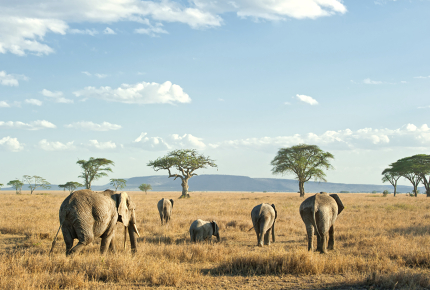 Most tourists visit Tanzania for the wildlife and scenery
Most tourists visit Tanzania for the wildlife and sceneryStockbymh / Thinkstock
Thirty years ago, the only volunteering opportunities in places like Africa and Southeast Asia were for skilled medical professionals, who would take a year out from their work to ply their trade in a developing nation.
Fast-forward to now and ‘voluntourism’, the modern-day equivalent of volunteering abroad, is a lot less exclusive.
Popularised by its inclusion on the archetypal gap-year agenda and regarded as another tick on the CV, volunteering has become a trendy way for wealthy westerners to give back to less fortunate communities.
But despite good intentions from participants, volunteering abroad has attracted substantial criticism over the past few years.
"It's imperialistic in some ways – white people going out to Africa to help the Africans."
“Are the volunteers actually providing any benefits to the destination countries?” asks Watson.
More often than not, the answer is unquestionably no.
The demand for volunteer spots in developing countries has led to hundreds of commercial volunteering organisations springing up. Many claim to have noble intentions but pocket the money for profit and send volunteers on unsatisfying, purpose-built placements.
Rather than benefiting local communities, voluntourism can have negative impacts, a number of studies have highlighted.
These range from volunteers taking local jobs to child trafficking, where young children are stolen from their families and placed into ‘orphanages’ to fuel the demand for volunteer placements. These kidnapped children are then subjected to deliberately poor living conditions to elicit higher donations from visiting westerners.
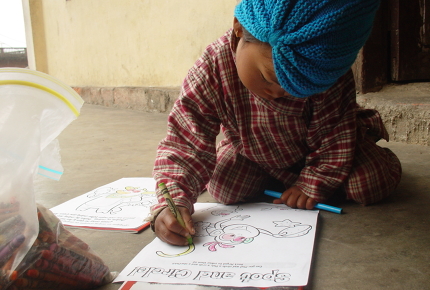 Nepal is one of the countries worst affected by orphanage tourism
Nepal is one of the countries worst affected by orphanage tourismCreative Commons / Mark Emmerson
While Watson acknowledges there are companies out there who employ good practice, it's a change in the mindset of would-be volunteers he'd most like to see.
“I talk to a lot of people who say they want to dig wells in Africa,” says Watson.
“I say what Africa has got quite a lot of is unskilled labour; there are a lot of people out there that can dig wells.
“The idea that you, as an unskilled worker, have got anything really useful that you can add is slightly arrogant and sort of imperialistic in some ways – white people going out to Africa to help the Africans.”
So does this mean Watson would like to see an end to volunteer placements abroad?
“I think it’s mostly about getting people to be realistic; you’re just doing it for yourself, it’s a holiday. You’re not really going to do anything particularly worthwhile, and that’s quite a hard message to get across.”
"The whole process can give a real face to poverty and vulnerability."
Kate Stefanko, Placement Director at People and Places, agrees, to an extent, but she thinks volunteering abroad can be beneficial to all concerned if it is done right.
“We believe that a carefully placed, thoroughly screened, well-prepared, skilled volunteer can – and does – have a positive impact,” says Stefanko.
All volunteers through People and Places have to apply for a position. Then, if accepted, the volunteer is matched with an upcoming project that can benefit from their skill set.
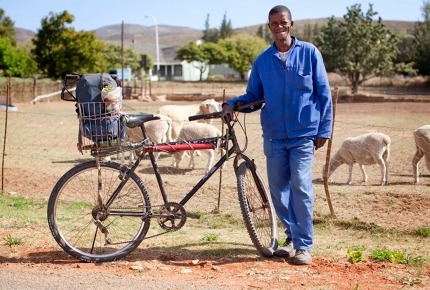 Volunteers taught bicycle maintenance workshops in SA
Volunteers taught bicycle maintenance workshops in SACreative Commons / Bicycle Portraits
“Well-run efforts can absolutely develop a level of social interaction and understanding that is profound,” Stefanko adds. “The whole process can give a real face to poverty and vulnerability, and shift consciousness toward the understanding of a shared humanity.”
Past projects that Stefanko deems successful include a bicycle maintenance scheme in South Africa, which resulted in jobs for five youths and working bicycles for a remote area, and a volunteer with business experience who helped develop a community-based tourism product which increased income to poorer neighbourhoods.
Sceptics argue that volunteers would be better off donating money to ethical projects so local people can be employed to carry out the work. While Stefanko disagrees, she does believe there is some truth to it.
"Be wary of advertisements that use a ‘save the world’ message."
“Volunteers should ask themselves the question, ‘would I be allowed to do this work in my own country?’” she says. “If the answer is ‘no’, then we would agree.”
Does this include volunteering with children?
“We believe that only volunteers with real childcare or education skills should work on such projects,” says Stefanko. “That said, we have placed volunteers who are still training in their own country – but only if we have matched them with another volunteer who is highly skilled.”
The exponential size of the industry has made auditing almost impossible, and volunteers can have very different experiences depending on the organisation they book with. These can range from fulfilling and meaningful, to pointless and potentially damaging.
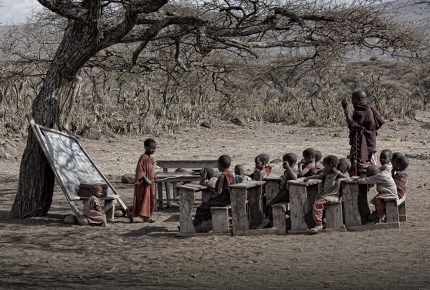 Untrained volunteers working with children is an issue for many
Untrained volunteers working with children is an issue for manyCreative Commons / Feans
So how do volunteers with good intentions avoid the pitfalls of the industry?
Claire Bennett works as part of the Learning Service, an organisation that readies volunteers for placements abroad.
“There are certainly some red flags to look out for in the marketing of volunteer placements,” Bennett says. “Be wary of advertisements that make it seem easy or heroic to be a volunteer, that use a ‘save the world’ message. Also watch out for touristic overtones that seem to be catering to the needs and choices of the ‘client’.
“Instead, look for organisations that seem to be transparent and honest, those that are open to answering questions,” she adds. “Or those that convincingly measure impact as change, rather than just numbers of things built or given away.”
Like a blood-sucking tick, the superficial voluntourism industry has latched on to the good name of volunteering and spent a decade poisoning its host.
Before further harm is done, a clear conceptual divide needs to be drawn between the ill-planned, short-term volunteering projects and the meaningful, long-term projects that resemble the initial practice embarked upon by medical professionals in the past.
Research is key when it comes to choosing a project that falls under the latter category, also helping volunteers to prepare more thoroughly and manage expectations.
Down with voluntourism, up with volunteering.
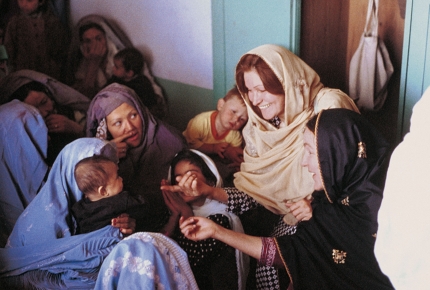 Responsible volunteering should pair people's skills with projects
Responsible volunteering should pair people's skills with projectsCreative Commons / Department of Foreign Affairs Australia
How to choose the right volunteer project
Finding answers to these questions, says Tourism Concern, will help volunteers make informed decisions about which organisation to work with:
1) Who is organising the project? Are they a bona fide, registered UK charity or a business that contributes a small proportion of profits towards a charity?
2) What is their motivation? Are they primarily a business or were they established to achieve a specific, worthwhile goal?
3) Does the organisation have a written policy on ethics and responsibilities?
4) What level of evidence is provided to demonstrate how the organisation implements its stated good intentions? Look for hard facts – don’t be fobbed off by PR flannel such as “thousands of volunteer pounds has aided the local economy.”
5) Is a wildlife project designed with specific conservation goals or is it a glorified safari and/or an opportunity to pet captured wildlife?
6) What has the organisation actually achieved so far, beyond painting the same school again and again or counting the same sea turtles?
7) Is a reputable NGO or government agency involved?
8) If “no knowledge or experience is required” why don’t they use local people? Is it because they just want your money?
Do you have an opinion on this subject? We want to hear it. Share your thoughts here.
Enjoyed this? You may also like:
12 ethical experiences for 2015
The 10 best pilgrimages for the modern traveller
On the radar: 12 places to go in 2015
Do you have any Feedback about this page?
© 2026 Columbus Travel Media Ltd. All rights reserved. No part of this site may be reproduced without our written permission, click here for information on Columbus Content Solutions.









 You know where
You know where